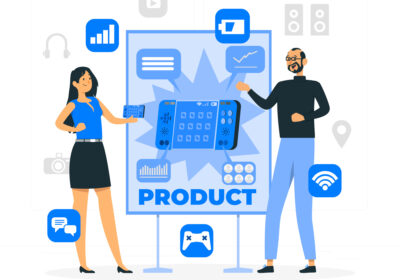Mobility is just as important for businesses as it is for people. According to UN’s International Telecommunications Union, there are more active mobile devices on the planet today than the total human population. Though mobility is consumer-driven in general, it’s fundamentally different for enterprises.
Though businesses have to leverage the potential of mobile technologies to move ahead of competitors in this age, many are still hesitant to do just that. They do use a number of apps however but rely a lot on legacy systems to run their core processes.
One reason for their indifference to enterprise mobility is the thought that they will need to invest a lot in building a fully functional mobile app that can deliver the same results as the apps running on their legacy systems. This can take months or even years. Many misconceptions about mobile application development and enterprise mobility also attribute to deterring businesses from going the mobile way.
Let’s explore a few such popular myths and the truth behind them.
#1. Optimizing a desktop app to work on mobile devices will work
Many businesses have the wrong notion that the best approach to adopting mobility is to have their existing desktop apps transformed to work on mobile devices at a low investment. This is mostly seen as a first step to mobility. Such a transformation won’t be worthwhile as most legacy desktop apps would only be able to run on smaller mobile screens while being incapable of utilizing mobile hardware to make operations easier and faster. In addition, they will also lack many mobile-friendly functionalities that a business will need.
Users will have to spend more time pinching and zooming to access the app’s functions, and scroll a lot for navigating too. This would eventually force them to find a different, more convenient solution.
#2. In-house mobile app development is the best bet
Some enterprises do find success with their in-house development teams. But there are potentially hundreds of apps that have been shelved or is taking too long to enter the market. Mobile app development is a challenging process that takes a lot of time. Additionally, mobile apps require more time and cost for maintenance and upgrades compared to other technologies.
With technologies evolving dynamically and becoming harder to keep track of, it may not always be possible for the in-house team to customize the mobile solution accordingly unless the enterprise is willing to spend vast resources on achieving mobility. Ultimately, the cost and the requirements would be challenging to meet for a growing enterprise.
A professional mobile application development company can do justice in such a situation, and build the app much faster at a much lower cost.
#3. Businesses and its operations can keep going without mobility
Many businesses that haven’t adopted mobility can give many reasons for why they don’t need a mobile app to keep moving forward. The truth is that those enterprises failed to see the revolution that’s been happening around them. Mobile devices have become personal for people, providing businesses with new, innovative opportunities to reach their consumers on their own personal devices anywhere across the globe.
The BYOD (Bring Your Own Device) trend is gaining more momentum every day, with many businesses adopting it. Smart businesses have found that it’s statistically feasible to take ways that beget more productivity from users rather than keeping their focus on user preferences. High performance, mobile-ready business processes are being introduced every day. All these facts are a testament to the fact that enterprise mobility can indeed turn the tides for a business, facilitating a more accelerated growth.
Conclusion
If a business is still not convinced that mobility is the gamechanger, they would just fall behind competitors very soon. The investment has proved worthy for businesses across various domains. Mobility is changing the way businesses operate, especially when technologies like IoT and the cloud keep growing at incredible pace. Enterprise mobility is now or never.





